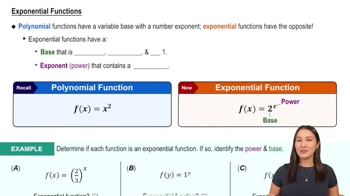Using properties of integrals Use the value of the first integral I to evaluate the two given integrals.
I = ∫₀¹ (𝓍³ ― 2𝓍) d𝓍 = ―3/4
(a) ∫₀¹ (4𝓍―2𝓍³) d𝓍
 Verified step by step guidance
Verified step by step guidance Verified video answer for a similar problem:
Verified video answer for a similar problem:


 5:43m
5:43mMaster Definition of the Definite Integral with a bite sized video explanation from Patrick
Start learning